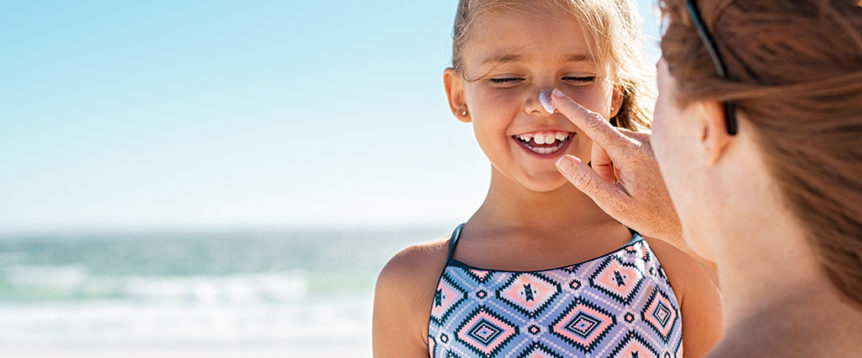It’s easy to equate wearing sunscreen with sunny summer days. But regardless of the time of year, the sun’s ultraviolet (UV) rays are hitting your skin whenever you’re outside, so it’s important to protect yourself year-round.
“Sunscreen is good to use 365 days,” says dermatologist Rebecca Baxt, M.D., a fellow of the American Academy of Dermatology. “It’s important to make it a part of your regular routine. Don’t be caught without it, because even little bits of sun can take a toll on your skin.”
Reasons to Wear Sunscreen
Most people wear sunscreen to protect against sunburn. “Sunscreen can also prevent hyperpigmentation and freckles,” says Baxt. “Sun ages collagen in your skin, so when you protect your skin, you will have fewer fine lines and wrinkles.” Wearing sunblock also reduces your skin cancer risk by blocking harmful radiation from UVA and UVB rays.
How Often and How Much?
“A tricky thing with sunscreen is that it only lasts two to three hours, assuming you’re not sweating or in the wind,” says Baxt. “Even if you’re good putting some on first thing, halfway through the day it stops working.” Baxt recommends reapplying every two to three hours; if you’re outside and active, every one to two hours. Don’t be afraid to glop it on. A trick for women is powder sunscreen. “Powder contains an inert chemical that sits on the surface of your skin and helps deflect the sun’s rays.”
What About SPF?
According to Baxt, sun protection factor (SPF) means that it’s going to take you X (SPF number) times longer to burn than without the sunblock. If you don’t want to reapply as often, use a higher SPF. “In winter, SPF 15 is probably OK, but in spring, summer and fall, SPF 30 or above is better,” says Baxt. “But if you have problems such as pigmentation or sensitive skin, or have dealt with skin cancer, use SPF 50 or 60.” Baxt also recommends using zinc-oxide sunscreens, because they are the most reliable.
Types of Rays
There are two types of UV rays harmful to your skin: UVA and UVB. According to the Skin Cancer Foundation, UVA rays account for up to 95 percent of the UV radiation that reaches the Earth’s surface. Although UVB rays are less prevalent, they also cause skin damage. Be sure to use a broad-spectrum sunscreen, which offers protection against both UVA and UVB rays.
Natural Sunscreens

Recommended by the Skin Cancer Foundation, this non-greasy, biodegradable, water-resistant sunscreen is good for daily wear. Aloe, green tea and palm kernel oil absorb quickly to nourish sun-exposed skin. The light, fresh scent comes from a combo of lavender, calendula and chamomile.

This sunscreen contains zinc oxide for sun protection, with carrot and sunflower moisturizers to soften dry skin. Aloe soothes and cools, and antioxidant green tea helps fight sun damage. With its easy-spray bottle, this water-resistant, fragrance-free formula is a natural for kids.


